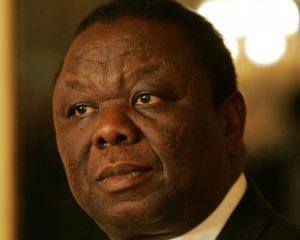
POLITICAL parties used the referendum campaigns to sell their election manifestos and to gauge their support ahead of this year’s plebiscite instead of articulating the real contents of the draft constitution.
BY CAIPHAS CHIMHETE
The elections are scheduled for later this year.
Although both Zanu PF and the MDC formations campaigned for a “Yes” vote, they were citing different reasons for why people must support the draft constitution.
This is more so because Copac failed to give people enough time to study and understand the contents of the draft constitution.
Zanu PF has been stressing on issues such as, indigenisation and economic empowerment and the land reform programme.
These are the same issues that underpin the party’s election strategy.
In one of several adverts flighted in newspapers last week, Zanu PF encouraged its supporters to vote in the affirmative because the draft charter “recognises the irreversibility of the land reform programme”and ensures that youths and veterans of the liberation struggle are looked after and given opportunities for economic empowerment.
- Chamisa under fire over US$120K donation
- Mavhunga puts DeMbare into Chibuku quarterfinals
- Pension funds bet on Cabora Bassa oilfields
- Councils defy govt fire tender directive
Keep Reading
War veterans have been at the centre of Zanu PF and President Robert Mugabe’s campaign machinery.
The MDC-T, on the other hand, urged people to vote “Yes” because the draft charter allowed devolution of power and because “aliens” would vote, while security services would be subject to parliamentary oversight.
“The people formerly commonly referred to as aliens, who were born in Zimbabwe but with parents from the Sadc region, are now Zimbabweans by birth and [as] such they are entitled to vote or be voted for,” said MDC-T in its campaign messages.
Electorate being deprived right to make decisions
Analysts said by informing their supporters on selective data from the draft charter, the parties deprived them of their right to information to enable them to make independent decisions.
Crisis in Zimbabwe Coalition (CiZC) spokesperson, Tabani Nyoni said the convergence of the “Yes” vote was motivated by different reasons. He said Zanu PF and the two MDC formations were using the referendum to kick-start their campaigns, as well as confirm who their voters would be during the forthcoming elections.
“Both or all the political parties want to claim victory when the “Yes” vote prevails and from there build momentum for the elections,” said Nyoni. “Basically, it is an opportunity for the political parties to build momentum and garner as much support as possible ahead of the elections.”
Nyoni added: “The running around you saw was not about the referendum as such but about preparing for the forthcoming elections.”
Addressing a meeting on the referendum in Bulawayo last week, Prime Minister Morgan Tsvangirai said it was his party that campaigned for devolution to be included in the draft constitution.
“Devolution of power is not a Matabeleland fight but a national cause. For a very long time, they [Zanu-PF] thought the ones from Matabeleland were the only ones who were campaigning for devolution of power,” said Tsvangirai. “We [MDC-T] say a devolved state is the one we want.”
Analysts said this showed that the MDC-T was trying to get political mileage from the people of Matabeleland ahead of the elections by claiming to champion their cause.
Political analyst, Alois Masepe said political parties were just picking points from the draft charter that interested their supporters so that they could be voted into office.
“Parties were basically campaigning for elections because they were only picking strong points they knew would endear them with their supporters,” said Masepe. “These parties are already in the election mood and would not publicise points that will work against them. Publicising the whole document was the work of Copac, not political parties.”
Zanu PF sympathiser, Christopher Mutsvangwa admitted that the idea of picking certain points and leaving out others disadvantaged people. “Ideally, they [parties] are supposed to tell people everything but remember we are going into an election,” said Mutsvangwa.
The parties however, agreed on issues such as the rights of women and the youth’s right to free basic education.
“This is because both parties are fighting for votes from women and the youth,” said one analyst. “This is why they are highlighting such points.”
Zimbabweans yesterday voted in a referendum on a new constitution which is opposed by the NCA who claim that Zimbaweans were not given ample time to study the charter before it was brought to a referendum.











